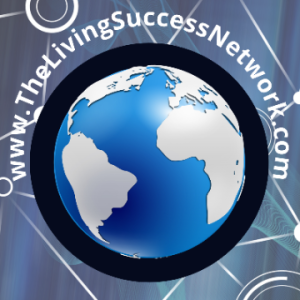Understanding Emotional Intelligence (EI) and its Role in Leadership
Emotional Intelligence (EI), often referred to as EQ, is the ability to recognize and manage your own emotions and understand the emotions of others. It plays a crucial role in leadership and interpersonal skills, offering benefits in both personal and professional settings. This article explores the components of emotional intelligence, the importance of EI in leadership, and the potential for improving one’s EI through training.
Emotional Intelligence
Emotional Intelligence (EI), often abbreviated as EQ, was popularized by psychologist Daniel Goleman and is defined as the ability to recognize and manage your own emotions and understand the emotions of others. It is sometimes referred to as “emotional quotient” (EQ) and is increasingly seen as a critical competency, often mattering more than IQ in leadership roles.
Self-Awareness
High emotional intelligence includes a strong self-awareness, self-management, social awareness, and relationship management. These components allow individuals to navigate the social and emotional aspects of both personal and professional life effectively.
Self-Management
Research on emotional intelligence has shown a strong link between high EI and job performance, job satisfaction, and leadership skills. A high degree of emotional regulation, the ability to manage emotions, and the capability to recognize and understand the emotions of others are especially important in leadership roles.
One of the key benefits of EI is the ability to develop your emotional states, as well as your self-confidence and interpersonal skills. It is well worth the effort to understand the emotions of others, connect with them, and build rapport.
Relationship Management
Emotional intelligence, often measured using a 360-degree assessment, extends beyond just knowing how to manage your own emotions. It includes the ability to recognize and understand the emotions of others and connect on an empathic level.
The ability to perceive, understand, and manage emotions is vital in leadership development. Studies have shown that individuals with high EQ often outperform those with low emotional intelligence in leadership roles. Moreover, EQ can be learned and developed over time, much like IQ or technical skills.
Social Awareness
Emotional intelligence can be seen as a protective factor, contributing to mental health and human relationships. It enables individuals to self-regulate, which is the ability to control and manage emotions effectively, even in challenging situations.
Emotional intelligence in organizations is a topic of increasing interest. It is recognized as a key element in building successful teams and enhancing overall workplace dynamics. Leadership roles that lack emotional intelligence often suffer from conflicts and low employee morale.
In summary, emotional intelligence, also known as EQ, is a critical skill that plays a significant role in leadership and organizational success. It involves understanding and managing emotions, not only in oneself but also in others. Developing emotional intelligence through training is essential for personal growth and effective leadership.
Conclusion:
Emotional Intelligence (EI) or EQ is a vital aspect of personal and professional development. It involves understanding and managing emotions, not just within oneself but also in others. The ability to recognize, comprehend, and regulate emotions is crucial for effective leadership and interpersonal skills. Research has demonstrated the significant impact of EI on job performance, job satisfaction, and overall success in leadership roles. Furthermore, the good news is that EI can be learned and developed over time, making it a valuable asset for anyone looking to enhance their emotional and social intelligence.
In today’s world, where relationships and collaboration are paramount, honing your emotional intelligence can be a game-changer. It’s well worth the effort to explore, understand, and build upon this essential skill to foster better personal and professional connections.
FAQs (Frequently Asked Questions):
What is Emotional Intelligence (EI)?
Emotional Intelligence, often abbreviated as EI or EQ, is the ability to recognize, understand, and manage emotions—both your own and those of others.
Why is Emotional Intelligence important in leadership?
EI is crucial in leadership because it helps leaders build strong relationships, manage conflicts effectively, and create a positive work environment, ultimately leading to better team performance and job satisfaction.
Can Emotional Intelligence be learned and improved?
Yes, EI is a skill that can be developed over time through training, practice, and self-awareness. Just like any other skill, it can be improved with effort.
What are the key components of Emotional Intelligence?
The key components of EI include self-awareness, self-management, social awareness, and relationship management. These elements collectively contribute to one’s emotional intelligence.
How does Emotional Intelligence affect job performance and job satisfaction?
Research has shown that individuals with high EI tend to perform better in their jobs, exhibit higher job satisfaction, and experience more success in leadership roles compared to those with low emotional intelligence.
Is Emotional Intelligence more important than IQ in leadership?
While both IQ (intelligence quotient) and EI are essential, EI often matters more in leadership roles. The ability to manage emotions and understand others’ feelings is crucial for effective leadership and interpersonal dynamics.
Are there any online resources or courses for improving Emotional Intelligence?
Yes, there are many online courses, books, and resources available for individuals looking to enhance their emotional intelligence. Many institutions and platforms offer training in this area.
Can Emotional Intelligence benefit personal relationships as well?
Absolutely. EI is not limited to professional settings. It can significantly enhance personal relationships by improving communication, empathy, and conflict resolution skills.
What are the practical steps to develop Emotional Intelligence?
Developing EI involves self-reflection, active listening, empathizing with others, and seeking feedback. It’s a continuous journey of self-improvement and growth.
Is Emotional Intelligence a fixed trait, or can it change over time?
EI is not a fixed trait. It can change and improve over time with self-awareness, practice, and a willingness to grow. It’s a skill that can be cultivated throughout life.


